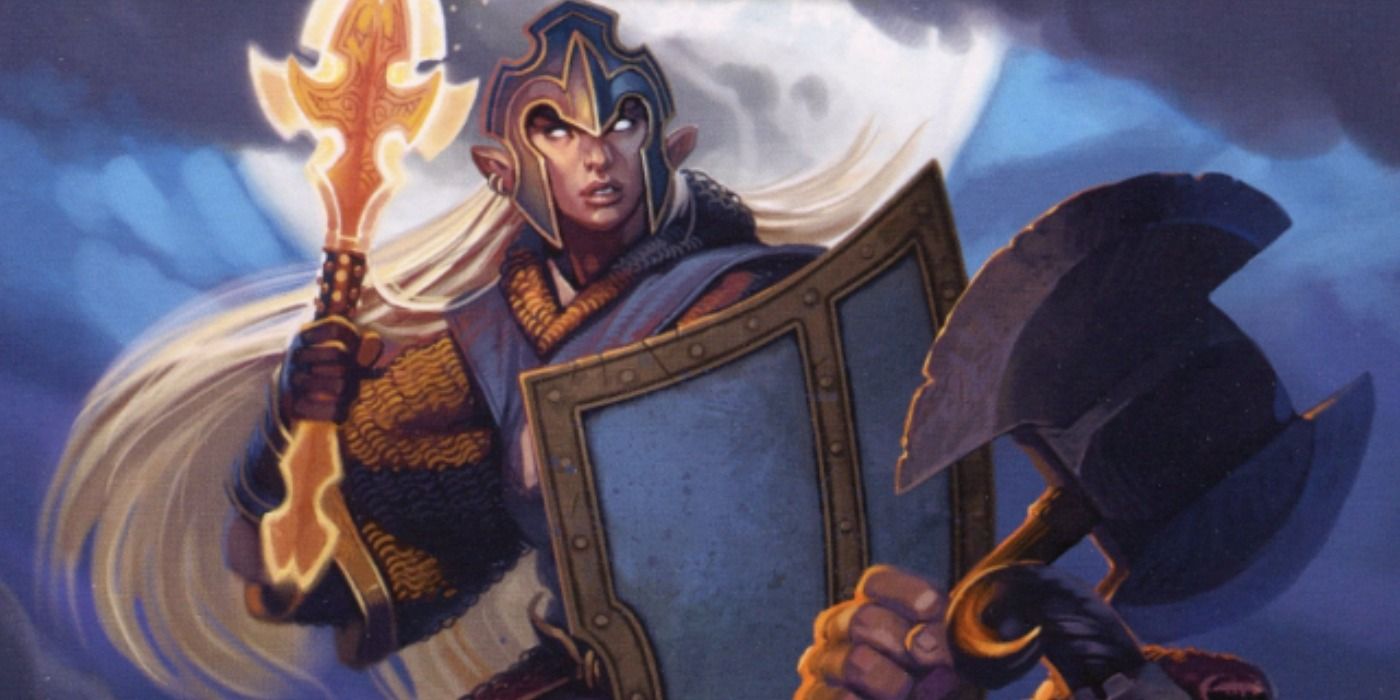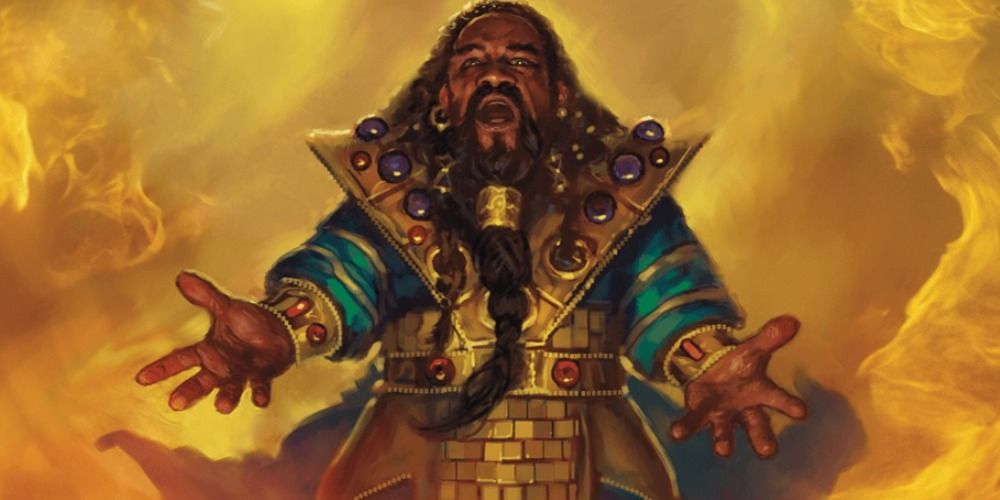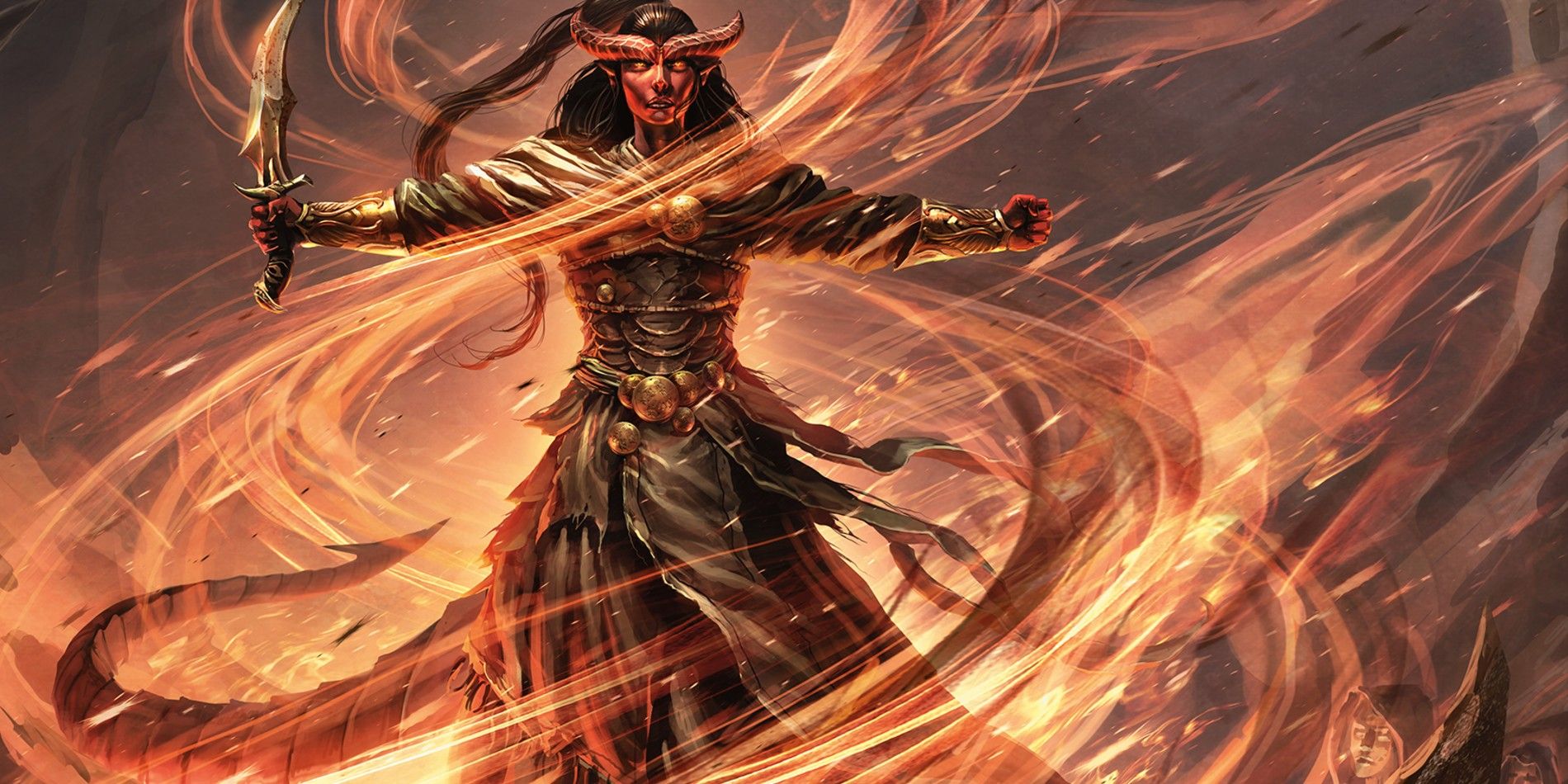Clerics in Dungeons & Dragons once had a unique spell that rivaled the mighty of wish, in the form of the miracle spell. The miracle spell doesn't exist in the current edition of D&D, giving the Sorcerers and Wizards of the D&D world access to the strongest spell in the game, and leaving the divine spellcasters behind.
In the Player's Handbook for the current edition of D&D, Clerics only have access to four ninth-level spells. These include astral projection (the Cleric and their allies travel to the astral plane in spirit form), gate (create a portal to another plane of existence), mass heal (cures 700 hit points worth of damage, along with any status effects), and true resurrection (bring someone back to life if they died from anything other than old age). The only Player's Handbook spell that is unique to Cleric is mass heal, which is an incredibly powerful D&D spell and can turn the tide of battle in a given party's favor.
The fact that Clerics even have ninth-level spells to begin with is a step up from the days of Advanced Dungeons & Dragons, when they were all capped at seventh-level spells. Meanwhile, there were twelfth-level spells for arcane spellcasters in some D&D books, even though most games capped them at ninth-level. The third edition of D&D evened things out, as Clerics and Druids gained access to eighth and ninth-level spells for the first time. Clerics also received access to one of the best spells in Dungeons & Dragons, which was capable of matching the power wielded by the arcane casters.
The Miracle Spell Once Rivaled Wish
In the 3.5 Player's Handbook, the miracle spell is a ninth-level Cleric spell. The Cleric directly asks their deity (or whatever divine power they worship) to intercede on their behalf. Its effects are broken up into two tiers, with the second tier potentially costing 5000 experience points. The first tier of the miracle can duplicate the effect of any 8th level Cleric spell, any 7th level spell in the game, undo the harmful effects of spells like feeblemind or insanity, or any power of a similar effect. The second tier is far more powerful and it comes with the 5000 experience point cost, as the Cleric asks their god in Dungeons & Dragons for a far stronger effect, such as helping one side win a war, teleporting the party to safety, or preventing a natural disaster.
The catch with miracle is that the request must line up with the diety's alignment and desires. A Cleric of a war god (like Tempus or Heironeous) might refuse to help a side win a battle, as they believe the stronger side deserves to win on its own merits, and divine intervention would remove the need for strong soldiers or intelligent battle plans. A Cleric who worships a peaceful god (like Eldath or Rao) has a much greater chance of receiving divine help in ending a mass conflict. If the god doesn't fit into either category, then it's up to the DM running the D&D campaign to determine how they would react when asked for aid.
Wish Vs. Miracle - Which D&D Spell Was Stronger?
On the surface, the miracle and wish spells share a lot of similarities. The ability to replicate spells is shared among them and it was a great way to access buffs from other classes, such as spell resistance (which was restricted to Clerics) and iron body (which was restricted to Sorcerers, Wizards, and Earth Domain Clerics). It's the second-tier effects that differentiate the two. Both miracle and wish have the ability to break the boundaries of reality and create the most powerful effects in the history of D&D. The wish spell is more powerful, in the sense that the caster is not restricted in what they can ask for. A god will likely refuse a Cleric's request to ascend to godhood using miracle, but a Wizard could replicate that with the wish spell. The problem with wish is that it has a tendency to backfire on the caster, for the effect is judged by an even greater power than the gods - the DM. The wish spell is an open invitation for the DM to screw with the player and have them suffer a terrible fate, due to playing with powers they don't understand.
The miracle spell is restricted by the deity's wishes, but it's also a lot safer. It's rare that a miracle spell will backfire, as the deity will either refuse it or provide the effect willingly, as it's in their best interests to do so. In the current edition of D&D, wish is still an incredibly powerful spell in D&D, but it also comes with a stiff drawback, as the caster takes damage, has their Strength reduced to 3 for 2d4 days, and there's a 33% chance that they will never be able to cast the wish spell again. This is alongside the regular drawback of the DM deciding to screw over the player, due to poor wording of their wish.
D&D Clerics Now Have To Make Do With Divine Intervention
As of the time of writing, the miracle spell doesn't exist in any of the official fifth edition D&D books. Instead, Clerics have a similar power, in the form of the Divine Intervention class feature. Divine Intervention is the tenth level Cleric class feature and it allows them to petition their deity for aid. The player makes the request and rolls a d100. If the roll is lower than their current Cleric level, then the deity intervenes. This likely won't involve the god literally manifesting in its avatar form and going to town on the Cleric's enemies. Instead, it's likely that the effect will match that of a strong Cleric spell in D&D or a Domain class feature. If the Cleric succeeds in petitioning their deity for aid, then they cannot use the Divine Intervention power again for another week. Once the Cleric hits level 20, the roll automatically succeeds.
Divine Intervention is nowhere near as powerful as miracle, but it does have the benefit of being more likely to occur in the average D&D campaign. In third edition, Clerics didn't gain access to miracle until they hit level 17, and most campaigns never get that far. As a tenth-level class feature, Divine Intervention could feasibly be used in many campaigns. A lot of the official Dungeons & Dragons campaigns released by Wizards of the Coast go further than level 10, so there's a chance that a desperate Cleric might successfully call on their deity for help, and be given the blessings of the gods themselves.




